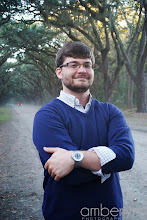I find that the mind behind the poetry is very fascinating (which is why I have been primarily writing about the essays and prefaces to many of the writer’s works). How a writer feels about his or her poetry is very important to them. After all, that is why they write a lot of it! It is exciting to see how some of the author’s views differ in and out of the poetic media. For instance, Samuel Coleridge writes in his Philosophic Definitions of a Poem and Poetry that “[a] poem is that species of composition, which is opposed to works of science, by proposing for its immediate object pleasure, not truth” (355). The idea that poetry is immediately for pleasure and not for truth in many ways goes against what many people teach about poetry. We spend hours upon hours searching through stanzas and lines to find truth in poetry, yet Coleridge believes that these verses were written primarily for our pleasure. It is difficult to imagine what other authors of the age would say when approached with this proposal. I think, especially for the romantic writers, it is difficult to separate the two. A lot of them are writing for beauty, which is their truth, and through that truth they find the beauty of poetry and the pleasure of poetry. I can see where Coleridge may be saying that we should approach poetry from a stand point that is primarily of pleasure and then hopefully we may find the truth.
Coleridge goes on to give examples of different poems or poetic writings that may complicate this idea of a separation of pleasure and truth. He writes about the first chapter in Isaiah saying that “it would not be less irrational than strange to assert, that pleasure, and not truth, was the immediate object of the prophet” (355). So then how can a poem be written primarily for pleasure when we have entire books of the bible written in poetic forms? Of course not everyone sees the bible as being “the truth,” so this is how Coleridge starts to define his idea of poetry. He starts with saying that “whatever specific import we attach to the word, poetry, there will be found involved in it, as a necessary consequence, that a poem of any length neither can be, or ought to be, all poetry” (355). This is interesting! The entirety of the poem is not necessarily poetry, eh? Much like my discussion of Wordsworth’s view of poetry yesterday, Coleridge feels that you cannot see why a poet writes about anything until you define what a poem is and in doing so, you unearth the essence of the poet.
In Coleridge’s philosophical discussion of the poem and poet, he gives the poet a lot power that, in the end, seems rather mystical. Coleridge describes the poet as someone who “brings the whole soul of man into activity, with the subordination of its faculties to each other, according to their relative worth and dignity. He diffuses a tone, and spirit of unity, that blends, and (as it were) fuses, each into each, by that synthetic and magical power, to which we have exclusively appropriated the name imagination” (355). Again, we see the importance of imagination in the poet’s world. According to Coleridge, the poet has a lot of power, and in order to function, the perfect poet must affect the reader in many ways by using this combination of influences called imagination. So what do we make of the pleasure vs. truth debate? Coleridge gives his philosophical ideas, but never seems to answer what he was initially talking about. I feel that his conclusion on the poet is still very important, and it is very much in the vein of the romantics to focus so strongly on imagination. I still posit that you cannot have the pleasure without the truth no matter what the reader or the author’s intention was at first.

1 comments:
Corbin,
Good speculative discussion of Coleridge's definition of poetry in this post. I agree that his distinction between pleasure and truth seems odd, particularly as he applies. Perhaps he is using the terms in a peculiar way, though. One would need more context for the statement, or a comparative passage from another text in which he used the term, to be more certain on his meaning. I assume that if his statement defining poetry does not seem to make sense, there must be a explanation which would clarify his meaning. You have found a very good passage for discussion and further research, though.
Post a Comment